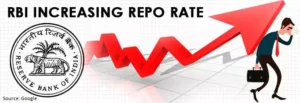Electric Vehicle Revolution : How India Can Embrace the Eco-Friendly Future
Electric vehicles (EVs) are becoming more popular around the world, but is India ready to replace petrol cars with EVs without enough charging stations? This is a complex question that requires considering various factors, such as the availability of charging stations, the range of EVs, and the cost of EVs.
Availability of Charging Stations
One of the main challenges for EVs is the lack of charging stations. In India, there are only about 10,000 public charging stations, which is very low compared to the number of petrol stations. This means that EV owners may have trouble finding a place to charge their cars, especially if they are travelling long distances.
Range of Electric Vehicles
Another challenge for EVs is their range. Most EVs can travel for around 200 miles, which is sufficient for many people’s daily commutes. However, for longer trips, it is important to plan ahead and make sure that there are charging stations along the route.
Cost of EVs
EVs are also more expensive than petrol cars. The average cost of an EV in India is around Rs. 10 lakh, while the average cost of a petrol car is around Rs. 5 lakh. This higher cost can be a barrier for many people who are considering buying an EV.
Government Incentives
The Indian government is offering a number of incentives to encourage people to buy EVs. These incentives include tax breaks, rebates, and free parking. These incentives can help to offset the higher cost of EVs and make them more affordable for people.
Conclusion
In conclusion, it is clear that India is not yet ready to replace petrol cars with EVs without enough charging stations. However, the situation is improving rapidly. The number of charging stations is increasing, the range of EVs is increasing, and the cost of EVs is decreasing. As these trends continue, we will eventually reach a point where EV cars are a viable option for everyone.
Here are some of the things that can be done to improve the readiness for EV cars in India:
- Increase the number of public charging stations.
- Improve the speed of public charging stations.
- Develop new technologies that can extend the range of EVs.
- Reduce the cost of EVs. As these things are done, we will get closer to a future where EV cars are the main mode of transportation in India.

Pros and Cons of EV Cars
EV cars have both advantages and disadvantages. Here are some of them:
Pros
- EVs are better for the environment. They produce zero emissions, which can help to reduce air pollution and climate change.
- EVs are more efficient than petrol cars. They use less energy to travel the same distance, which can save money on fuel costs.
- EVs are quieter than petrol cars. This can be beneficial in urban areas where noise pollution is a problem.
- EVs are easier to maintain than petrol cars. They have fewer moving parts, which means there is less that can go wrong.
Cons
- EVs are more expensive than petrol cars. The initial purchase price of an EV is higher than the purchase price of a petrol car.
- EVs have a shorter range than petrol cars. Most EVs can only travel around 200 miles on a single charge, which may not be enough for some people.
- There is a lack of charging infrastructure for EVs. There are not enough public charging stations available, which can make it difficult to find a place to charge an EV.
Conclusion
There are both pros and cons to EV cars. Ultimately, the decision of whether or not to buy an EV is a personal one. However, as the technology continues to improve and the cost of EVs comes down, it is likely that EVs will become a more popular option in the years to come.




Average Rating